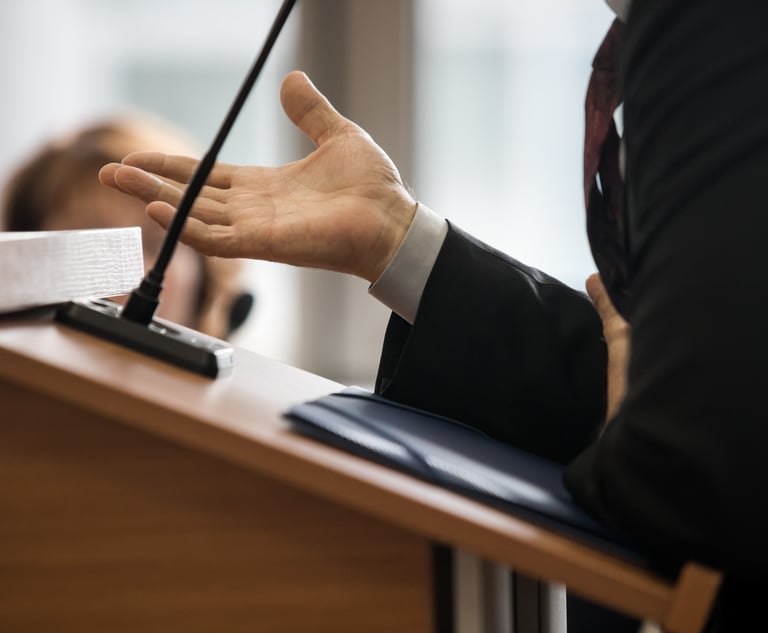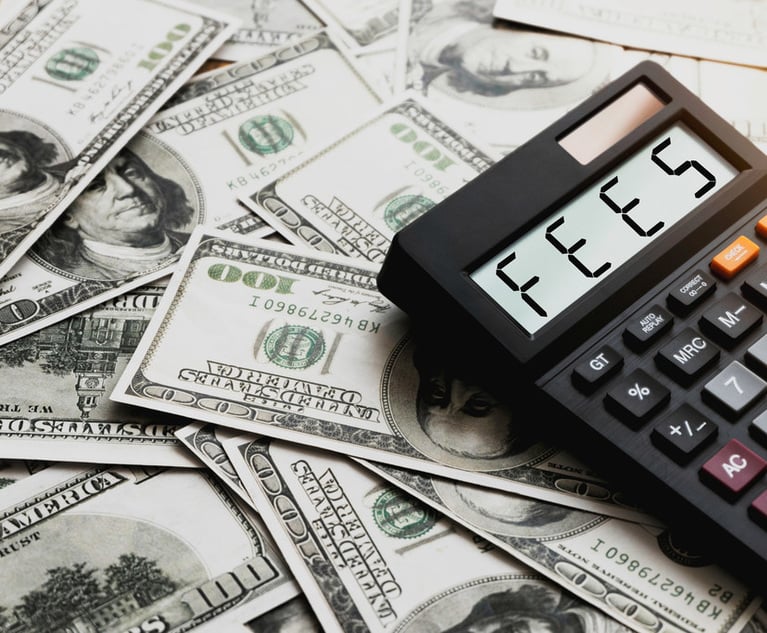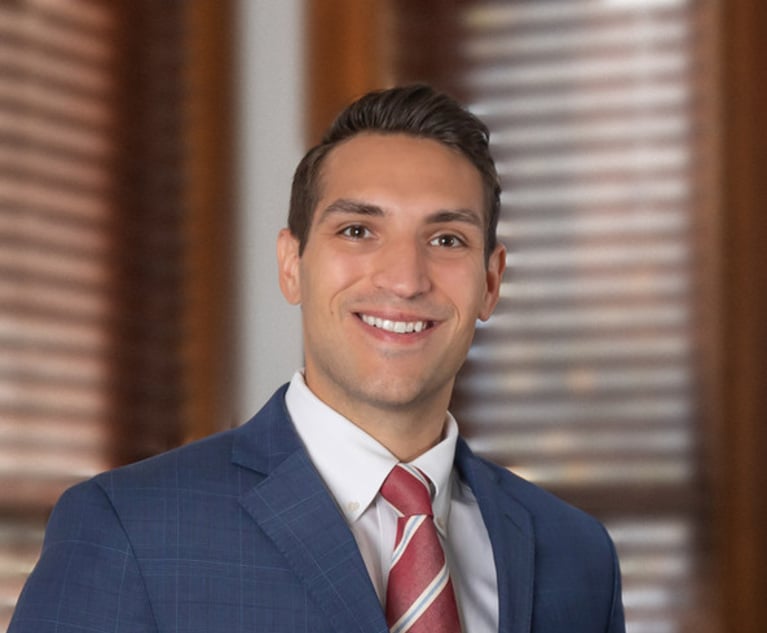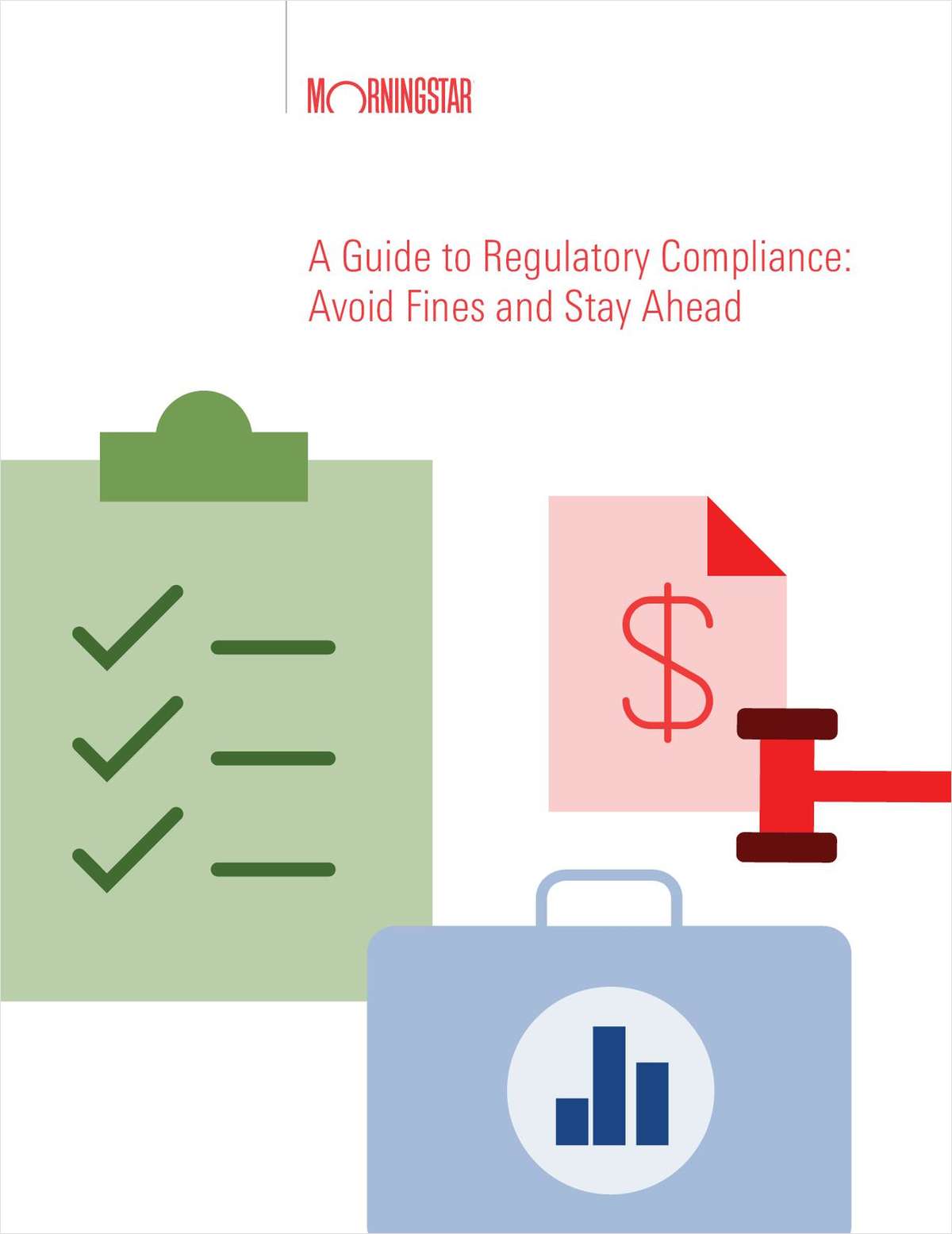 Vote 2020 buttons.
Vote 2020 buttons.Allow Vote by Mail For Elections in Connecticut
Meeting this unprecedented challenge will require significant changes in current law and practice.
May 28, 2020 at 10:36 PM
5 minute read
The protection of America's electoral democracy during the pandemic onslaught requires a two-pronged strategy: the practice of social distancing at the polls on Election Days and the adoption of new methods of remote ballot access for voters. Meeting this unprecedented challenge will require significant changes in current law and practice.
Gov. Lamont began to address the first prong on March 19 when he issued Executive Order No. 7 to postpone the state's presidential primary elections from April 28 to June 2.
Citing "a compelling interest in reducing the risk of transmission of COVID-19 among voters, poll workers, and residents, which risk would be heightened in the settings of indoor polling places and potential lines for voting, especially in polling places such as senior centers, schools, community centers, and other public facilities," the Governor announced:
"Under my sole authority pursuant to the declaration of public health and civil preparedness emergency, and to protect the health and safety of voters, poll workers, and the most vulnerable members of our population, I hereby modify Section 9-464 of the Connecticut General Statutes to provide that on June 2, 2020 each party shall conduct a primary in each town if the names of two or more candidates for President of the United States are to be placed on such party's ballot m accordance with the provisions of chapter 154 of the General Statutes."
The same "compelling interest" that justified the delay in the primary also provides the legal justification for assuring a new method of the right to vote both in June and, more importantly, in November. That is why we call on Governor Lamont to issue a new Executive Order to allow universal "no excuse" absentee or mail-in balloting for both the upcoming primary and for the November general election.
We believe the legal authority plainly exists for the Governor to issue such a new Executive Order. The constitutional mandate is set forth in the "Free Suffrage" provision of the State Constitution, found in Article Sixth, Sec. 4, which authorizes the state government to protect the right to vote:
"Laws shall be made to support the privilege of free suffrage, prescribing the manner of regulating and conducting meetings of the electors, and prohibiting, under adequate penalties, all undue influence therein, from power, bribery, tumult and other improper conduct."
It is hard to imagine a clearer and more unambiguous constitutional directive for taking positive steps to secure the franchise in the face of a public health emergency.
A second strong constitutional basis for an executive order can be found in Article Sixth, Sec. 7 of the Connecticut Constitution. Under this section:
"The general assembly may provide by law for voting in the choice of any officer to be elected or upon any question to be voted on at an election by qualified voters of the state who are unable to appear at the polling place on the day of election because of absence from the city or town of which they are inhabitants or because of sickness or physical disability or because the tenets of their religion forbid secular activity."
The General Assembly has chosen to give the narrowest possible construction of this authority by requiring in C.G.S. Sec. 9-135 that the "sickness or disability" be the "his or her illness" of the voter as a precondition for issuance of an absentee ballot. However, the language appears to permit a more general reading to cover illness arising from a public pandemic in which the "sickness or disability" infects not just an individual voter but applies to large segments of the population as well.
The public health emergency powers that authorized the Governor to modify C.G.S. Sec. 9-464 to change the date of the primary elections in 2020 also authorizes him to modify C.G.S. Sec. 9-135 to change the procedures for utilization of paper absentee ballots in response to the state's "compelling interest" in reducing the risk of illness and the state's constitutional mandate to protect the right to vote.
In addition, the Governor should modify the election law to permit an on-line application process for an absentee ballot so that voters do not need to appear at their Town Clerk's office in person to make a request, as is the case now in most circumstances.
It is prudent to assume there is no reasonable possibility that the threat to public health will have abated sufficiently to rely solely on in-person polling place voting for the June primary. Therefore, the shift to no-excuse absentee and mail-in ballot approval will be needed soon. And if that is the case, we can see no reason not to declare at the same time that the same new procedures should also be followed on Election Day in November. Such early notice to voters will be reassuring that elections will not be cancelled. It will give Registrars of Voters enough time to train poll workers and to put in place verification and ballot counting procedures to assure the integrity of the vote count.
If it would promote non-partisan acceptance of the new voting procedures, we would not find it objectionable if the changes were applied on a temporary basis only during the current health emergency.
Finally, Connecticut will have an opportunity to apply some of its share of the $400 million of new federal funding from the Families First legislation approved in April for states to modernize and add security to their voting procedures. Our state should take advantage of these new federal funds to make the shift to no excuse absentee mail in voting on a statewide basis.
This content has been archived. It is available through our partners, LexisNexis® and Bloomberg Law.
To view this content, please continue to their sites.
Not a Lexis Subscriber?
Subscribe Now
Not a Bloomberg Law Subscriber?
Subscribe Now
NOT FOR REPRINT
© 2025 ALM Global, LLC, All Rights Reserved. Request academic re-use from www.copyright.com. All other uses, submit a request to [email protected]. For more information visit Asset & Logo Licensing.
You Might Like
View All
New Teeth for Anti-SLAPP Statute? Absolute Immunity for Union Grievance Proceedings
2 minute read
Judge Reduces Attorneys' Award in Boston Sidewalk Settlement for Repetitive Billing
4 minute read
Pike Fuels Agrees to Pay $2 Million Settlement to Resolve Alleged New Haven Environmental Violations
2 minute readTrending Stories
- 1The Appropriate Exemption in Students for Fair Admissions v. President & Fellows of Harvard College
- 2DOJ, 10 State AGs File Amended Antitrust Complaint Against RealPage and Big Landlords
- 3New Partners at Cummings & Lockwood, Carmody Torrance Sandak & Hennessey
- 4'Extra Government'?: NY Top Court Eyes Ethics Commission's Constitutionality
- 5South Texas College of Law Houston Selects New Dean
Who Got The Work
Michael G. Bongiorno, Andrew Scott Dulberg and Elizabeth E. Driscoll from Wilmer Cutler Pickering Hale and Dorr have stepped in to represent Symbotic Inc., an A.I.-enabled technology platform that focuses on increasing supply chain efficiency, and other defendants in a pending shareholder derivative lawsuit. The case, filed Oct. 2 in Massachusetts District Court by the Brown Law Firm on behalf of Stephen Austen, accuses certain officers and directors of misleading investors in regard to Symbotic's potential for margin growth by failing to disclose that the company was not equipped to timely deploy its systems or manage expenses through project delays. The case, assigned to U.S. District Judge Nathaniel M. Gorton, is 1:24-cv-12522, Austen v. Cohen et al.
Who Got The Work
Edmund Polubinski and Marie Killmond of Davis Polk & Wardwell have entered appearances for data platform software development company MongoDB and other defendants in a pending shareholder derivative lawsuit. The action, filed Oct. 7 in New York Southern District Court by the Brown Law Firm, accuses the company's directors and/or officers of falsely expressing confidence in the company’s restructuring of its sales incentive plan and downplaying the severity of decreases in its upfront commitments. The case is 1:24-cv-07594, Roy v. Ittycheria et al.
Who Got The Work
Amy O. Bruchs and Kurt F. Ellison of Michael Best & Friedrich have entered appearances for Epic Systems Corp. in a pending employment discrimination lawsuit. The suit was filed Sept. 7 in Wisconsin Western District Court by Levine Eisberner LLC and Siri & Glimstad on behalf of a project manager who claims that he was wrongfully terminated after applying for a religious exemption to the defendant's COVID-19 vaccine mandate. The case, assigned to U.S. Magistrate Judge Anita Marie Boor, is 3:24-cv-00630, Secker, Nathan v. Epic Systems Corporation.
Who Got The Work
David X. Sullivan, Thomas J. Finn and Gregory A. Hall from McCarter & English have entered appearances for Sunrun Installation Services in a pending civil rights lawsuit. The complaint was filed Sept. 4 in Connecticut District Court by attorney Robert M. Berke on behalf of former employee George Edward Steins, who was arrested and charged with employing an unregistered home improvement salesperson. The complaint alleges that had Sunrun informed the Connecticut Department of Consumer Protection that the plaintiff's employment had ended in 2017 and that he no longer held Sunrun's home improvement contractor license, he would not have been hit with charges, which were dismissed in May 2024. The case, assigned to U.S. District Judge Jeffrey A. Meyer, is 3:24-cv-01423, Steins v. Sunrun, Inc. et al.
Who Got The Work
Greenberg Traurig shareholder Joshua L. Raskin has entered an appearance for boohoo.com UK Ltd. in a pending patent infringement lawsuit. The suit, filed Sept. 3 in Texas Eastern District Court by Rozier Hardt McDonough on behalf of Alto Dynamics, asserts five patents related to an online shopping platform. The case, assigned to U.S. District Judge Rodney Gilstrap, is 2:24-cv-00719, Alto Dynamics, LLC v. boohoo.com UK Limited.
Featured Firms
Law Offices of Gary Martin Hays & Associates, P.C.
(470) 294-1674
Law Offices of Mark E. Salomone
(857) 444-6468
Smith & Hassler
(713) 739-1250











